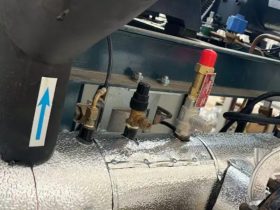Nissan’s engineering legacy spans decades of innovation, with powerplants that have achieved legendary status among automotive enthusiasts worldwide. From the iconic RB26DETT that powered the Skyline GT-R to the versatile VQ series found in everything from family sedans to sports cars, Nissan engines combine reliability, performance, and character in ways that continue to captivate drivers and tuners alike.
The RB Series: Nissan’s Straight-Six Masterpiece
The RB engine family represents one of Nissan’s most celebrated achievements in internal combustion design. Produced from 1985 to 2004, these inline-six engines became synonymous with the Skyline GT-R’s dominance in motorsport and street performance.
The crown jewel, the RB26DETT, featured:
- 2.6-liter displacement
- Twin ceramic turbochargers
- Individual throttle bodies
- Solid lifter valvetrain
- Forged internals
Though officially rated at 276 horsepower due to Japan’s “Gentleman’s Agreement” limiting advertised power, actual output was significantly higher. The engine’s robust design created a platform capable of handling tremendous power increases with appropriate modifications, with some builds exceeding 1,000 horsepower while maintaining reliability.
Lesser-known variants like the RB25DET and RB20DET also developed strong followings for their balance of performance and affordability, powering non-GT-R Skylines and other Nissan models.
The SR20: Compact Performance Pioneer
The SR20 engine family demonstrates Nissan’s ability to extract remarkable performance from smaller displacements. Available in naturally aspirated (SR20DE) and turbocharged (SR20DET) variants, these 2.0-liter four-cylinders powered everything from the Silvia/240SX to the Pulsar GTi-R.
The SR20DET’s enduring popularity stems from its:
- Strong iron block construction
- Aluminum cylinder head with timing chain
- Excellent response to tuning
- Compact size allowing for easy swaps
- Widespread availability
With stock outputs between 200-250 horsepower depending on the specific variant, modified versions regularly achieve double those figures while maintaining streetable characteristics. The engine’s adaptability has made it a favorite among drift competitors, time attack racers, and street builders worldwide.
The VQ Series: Versatility and Excellence
Perhaps Nissan’s most successful modern engine family, the VQ series has earned numerous “Engine of the Year” awards and powers a diverse range of vehicles from luxury sedans to sports cars.
Notable VQ variants include:
VQ35DE: Found in the 350Z, G35, and Maxima, this 3.5-liter V6 delivers smooth power delivery and distinctive exhaust notes. Revisions throughout its production run improved output from initial ratings of 230 horsepower to over 300 horsepower in later applications.
VQ37VHR: Featuring Variable Valve Event and Lift (VVEL) technology, this 3.7-liter evolution powers the 370Z and late-model Infiniti products with outputs approaching 350 horsepower while maintaining excellent drivability.
The VQ series exemplifies Nissan’s engineering philosophy of continuous improvement, with each iteration refining power delivery, efficiency, and reliability.
The Legendary VR38DETT: GT-R Powerhouse
Powering the R35 GT-R, the VR38DETT represents Nissan’s ultimate expression of high-performance engineering. This hand-assembled 3.8-liter twin-turbocharged V6 delivers:
- Initial ratings of 480 horsepower, increased to 565+ in later models
- Plasma-sprayed cylinder bores
- Integrated turbocharger exhaust manifolds
- Independent intake and exhaust cam timing control
- Massive tuning potential with aftermarket support
The VR38’s architecture has proven capable of supporting over 1,500 horsepower in competition builds while maintaining the reliability needed for daily driving in more modest states of tune.
Finding Quality Nissan Engines
For enthusiasts seeking replacement or upgrade options, the ability to buy JDM Nissan engine online has transformed the marketplace. Japanese Domestic Market (JDM) engines offer several advantages:
- Lower mileage: Japanese vehicle inspection laws and driving patterns typically result in engines with fewer accumulated miles.
- Higher specifications: Many JDM engines feature higher compression ratios, different camshaft profiles, and other performance-enhancing differences compared to their export counterparts.
- Rare variants: Models and engine configurations never officially exported become available through JDM imports.
- Documented history: Reputable importers provide compression test results and detailed assessments of engine condition.
When considering a JDM Nissan engine purchase, important factors include:
- Compression test results showing balanced readings across all cylinders
- Complete ancillary components (intake, exhaust manifolds, etc.)
- Full documentation of import and testing procedures
- Warranty coverage and return policies
- Compatibility with your specific vehicle application
Nissan Engines in Motorsport
Nissan’s engines have achieved remarkable success across diverse motorsport disciplines:
Circuit Racing: From dominating JTCC and JGTC/Super GT in Japan to winning the 1991 Spa 24 Hours, Nissan’s RB26 and VQ engines have proven their mettle against the world’s best.
Rally: The Pulsar GTi-R’s SR20DET challenged the established WRC contenders, while the earlier FJ20-powered 240RS competed in Group B.
Drifting: SR20 and RB-powered Nissans became the platforms of choice for professional drifters worldwide, with the S-chassis and Skyline serving as perfect drift machines.
Drag Racing: Modified Nissan engines have achieved remarkable quarter-mile times, with RB26-powered GT-Rs breaking into the 6-second range at over 200 mph.
The Future of Nissan Performance
As automotive technology evolves, Nissan continues developing next-generation powerplants. The VR30DDTT in the Infiniti Q60 Red Sport 400 demonstrates the company’s commitment to turbocharged performance, while electric propulsion systems like those in the Leaf and upcoming Ariya suggest intriguing possibilities for future performance applications.
Regardless of what comes next, Nissan’s engineering legacy ensures these engines will remain coveted by enthusiasts seeking the perfect balance of performance, reliability, and character that has defined the brand’s most celebrated powerplants.
For those looking to experience these legendary engines firsthand, the availability of quality imported units has never been better, allowing enthusiasts worldwide to experience what makes Nissan’s engineering achievements so special.






